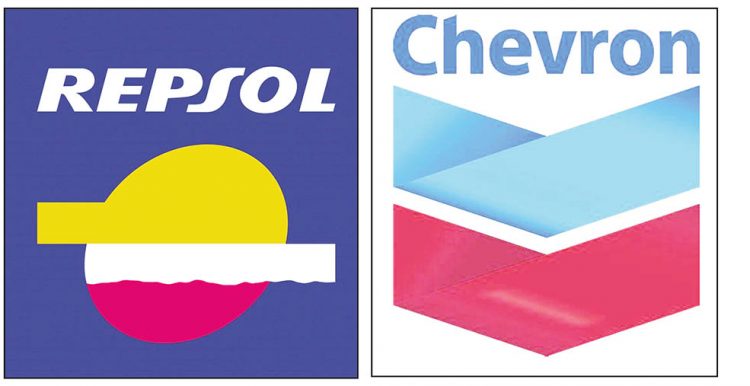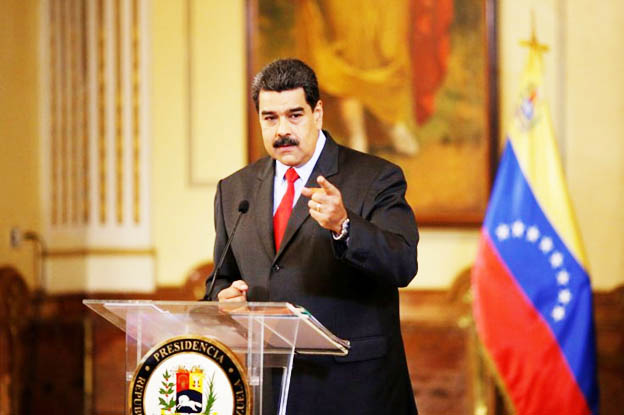Still struggling to increase both its oil production and international oil sales amidst the pressures of what remains a punishing regime of United States sanctions, Venezuela’s oil and gas sector continues to pursue a path of seeking every opportunity to monetize the drastically reduced amounts of oil that it recovers these days. In January, the country’s oil exports dropped to their lowest level in seven months, according to sector reports even as the Venezuelan state-run oil company PDVSA reportedly continues to manage its sales contracts in a manner that ensures that oil sales benefit, as far as possible, from immediate cash payments.
 A recent Organization of Petroleum Exporting Countries (OPEC) report indicates that Venezuela pumped a meagre 686,000 barrels of oil per day in January, around 20,000 barrels per day more than the previous month, but a far cry from the one million plus barrels per day that it had previously routinely recovered. PDVSA reported a higher figure of 732,000 barrels per day in January. The severely reduced volumes of oil recovered apart, Venezuela’s other serious challenge is that in its current socio-economic circumstances, PDVSA remains under the strictest pressure to minimize credit sales. Operating licenses issued by the US Treasury Department to Chevron, Spain’s Repsol and Italy’s Eni, effectively restricts the volumes of crude acquired by those companies to amounts sufficient to offset debts incurred by PDVSA. At the same time the conditions of the respective deals place limits on the amounts of cash that can be paid to PDVSA.
A recent Organization of Petroleum Exporting Countries (OPEC) report indicates that Venezuela pumped a meagre 686,000 barrels of oil per day in January, around 20,000 barrels per day more than the previous month, but a far cry from the one million plus barrels per day that it had previously routinely recovered. PDVSA reported a higher figure of 732,000 barrels per day in January. The severely reduced volumes of oil recovered apart, Venezuela’s other serious challenge is that in its current socio-economic circumstances, PDVSA remains under the strictest pressure to minimize credit sales. Operating licenses issued by the US Treasury Department to Chevron, Spain’s Repsol and Italy’s Eni, effectively restricts the volumes of crude acquired by those companies to amounts sufficient to offset debts incurred by PDVSA. At the same time the conditions of the respective deals place limits on the amounts of cash that can be paid to PDVSA.
In effect, what these arrangements amount to is a regime which applies limited flexibility to a US sanctions regime that remains very much in place. Beginning in May, last year, Eni and Repsol commenced the movement of consignments of Venezuelan crude to Europe under the conditions set out in the operating licenses issued by the US. While that arrangement was subsequently set aside in order that the initial terms could be revisited, shipments are reportedly set to resume, with one cargo already assigned to Eni for February loading. While Venezuela, given its wider socio-economic woes resulting from the prolonged sanctions, sees the current arrangements as a kind of ‘half a loaf’ deal, the foreign companies operating in Venezuela have been able to secure a greater measure of operational control over their “crude extraction ventures” even as Caracas seeks an arrangement that increases inflows of revenue through greater control over the volumes of its oil sales. The US Company, Chevron’s licence to export oil from Venezuela authorizes the company to access and sell Venezuelan crude from its four 200,000-bpd total capacity joint ventures with PDVSA, though the firm appears to have opted for loading from pre-existing inventories instead of increasing production. In January, the company was reportedly assigned six cargoes totaling 2.3 million barrels of Venezuelan heavy crude, most of which was reportedly sent to the company’s Pascagoula refinery in Mississippi. Other consignments were reportedly sent to various refineries in the US. PDVSA management, late last year, ordered a freeze on oil exports last month in order to focus on payment defaults by buyers. Venezuela reportedly saw its exports dip to 558,419 barrels per day of crude and refined products, a 19 percent decline compared to December.
 The figure reportedly represents the lowest level since July 2022 when the country exported 460,323 bpd of crude and fuel. A report in the Orinoco Tribune back in January (January 10, 2023) asserts that the Venezuela’s disastrous economic collapse coincides “almost perfectly” with the decline in the country’s oil revenues. After rising for more than a decade, oil revenues fell by 93 percent between 2012 and 2020. During this same period, per capita income declined by 72 percent. The trigger of the contraction was that Venezuela was left without foreign currency to pay for the imports that fuelled its economy, the Orinoco Tribune article says. Similar import and growth collapses occurred in Iraq, Libya, Iran, and other oil exporters when they faced sanctions limiting their capacity to sell oil internationally.
The figure reportedly represents the lowest level since July 2022 when the country exported 460,323 bpd of crude and fuel. A report in the Orinoco Tribune back in January (January 10, 2023) asserts that the Venezuela’s disastrous economic collapse coincides “almost perfectly” with the decline in the country’s oil revenues. After rising for more than a decade, oil revenues fell by 93 percent between 2012 and 2020. During this same period, per capita income declined by 72 percent. The trigger of the contraction was that Venezuela was left without foreign currency to pay for the imports that fuelled its economy, the Orinoco Tribune article says. Similar import and growth collapses occurred in Iraq, Libya, Iran, and other oil exporters when they faced sanctions limiting their capacity to sell oil internationally.






